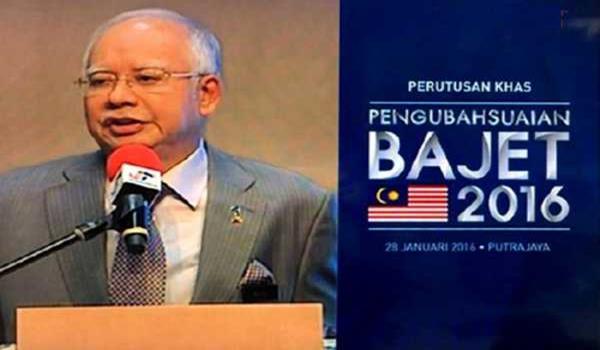- Currency gains most in emerging markets as Brent stabilize.
- PM kept fiscal-deficit target and plans support measures
Malaysia’s ringgit rose to a three-month high and stocks climbed for the week as investors cheered Prime Minister Najib Razak’s measures to shore up the economy from falling commodities.
The currency posted its biggest weekly gain since October and rallied more than any other in developing nations in January. Najib maintained the fiscal-deficit target in his budget revisions, while lowering employee state pension contributions and giving tax exemptions to certain groups of workers.
An 18-month slide in Brent crude, which has hit government revenue for oil-exporting Malaysia, forced the prime minister to cut this year’s price assumption.
While Brent has been very volatile and unnerved investors, it has recovered in the past two weeks and is up from the lowest level since 2003. The ringgit may outperform Asia emerging markets in 2016 as oil stabilizes and because the currency’s 19 percent loss last year was a bit overdone, according to Skandinaviska Enskilda Banken AB.
“Oil prices are higher and that’s definitely helping the ringgit,” said Sean Yokota, Singapore-based head of Asia strategy at SEB. “The budget was seen as pretty positive.”
The ringgit strengthened 1.3 percent to 4.1537 a dollar in Kuala Lumpur and was up 3.5 percent from Jan. 22, prices from local banks compiled by Bloomberg show. It reached 4.1195 on Friday, the highest level since October, when it last posted a weekly gain of more than 3 percent. The currency advanced against all 10 major exchange rates in Asia this week, and climbed the most versus the yen and Indian rupee.
Growth Cut
Analysts surveyed by Bloomberg forecast the ringgit will weaken to 4.40 a dollar by year-end, representing a 5.6 percent decline from the current rate. It climbed 3.3 percent in January, while most other Asian currencies depreciated.
Najib trimmed the 2016 growth forecast on Thursday to 4 percent to 4.5 percent, from as much as 5 percent, and cut the assumption price for oil to $30-$35 a barrel from $48. Brent was trading around $34 on Friday after falling to as low as $27.10 last week.
The government may need to initiate further subsidy cuts such as increasing highway toll rates to meet its target of reducing the fiscal deficit to 3.1 percent of gross domestic product this year, Michael Wan, an economist at Credit Suisse Group AG in Singapore, wrote in a report on Thursday.
In other local markets, Malaysia’s benchmark stock index halted a three-week loss and 10-year government bonds climbed for a third week, pushing the yield down two basis points to 3.88 percent. The cost to protect the nation’s debt from default for five years fell 17 basis points to 180, according to data from CMA.





